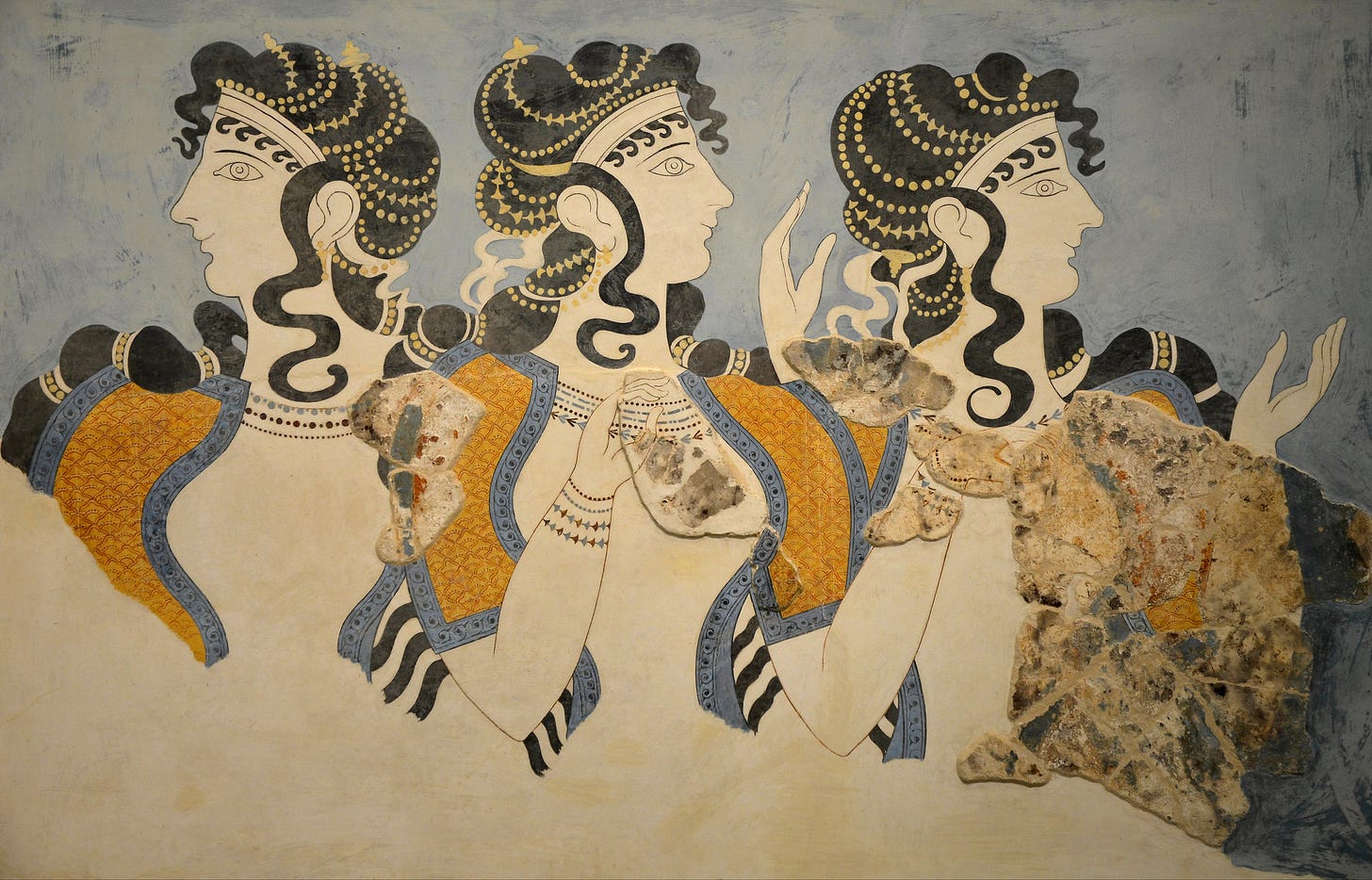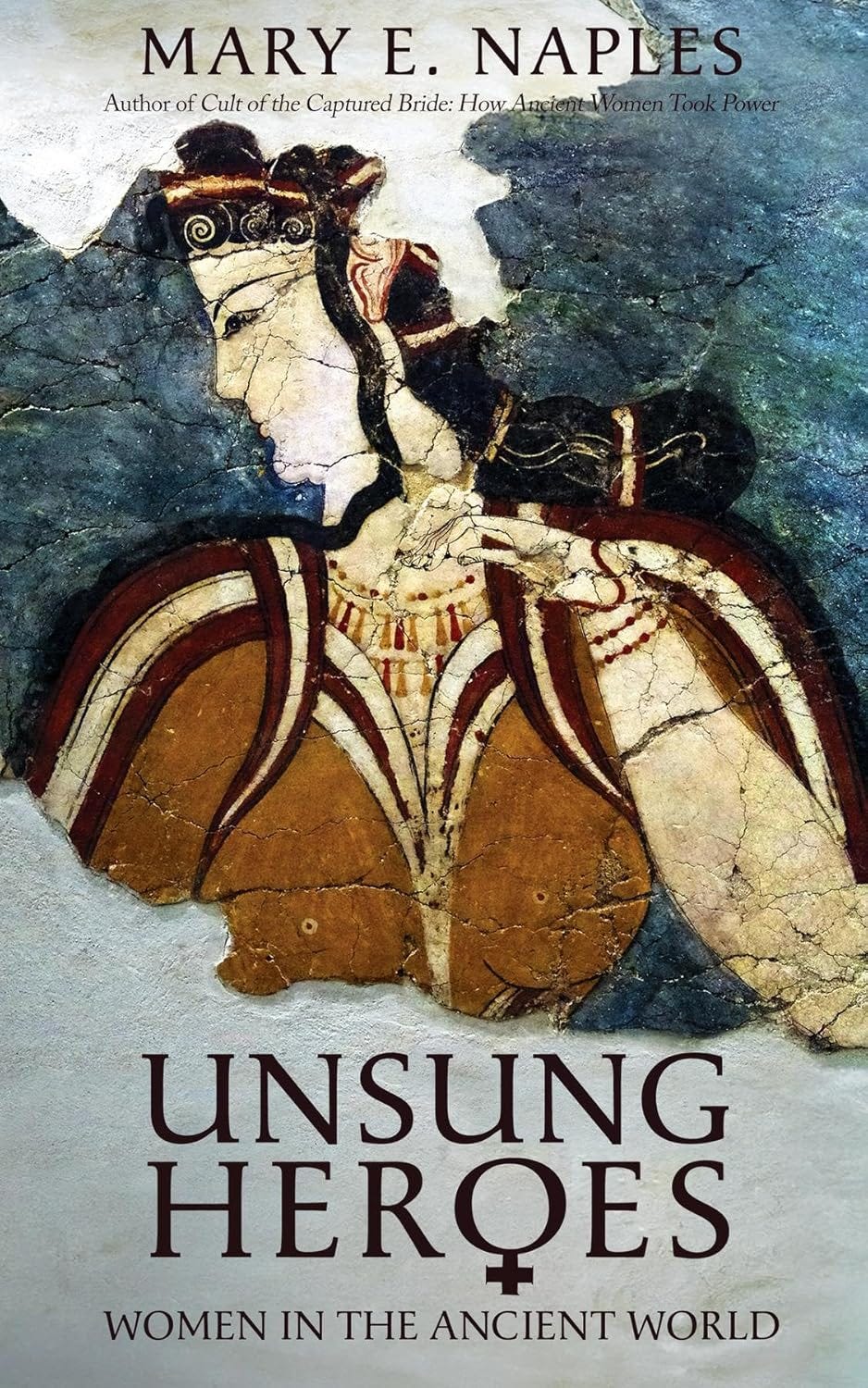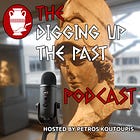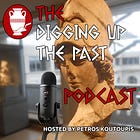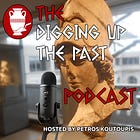Featured Episode - The Unsung Heroines of the Ancient World
Issue 55
In This Episode
In this exciting episode we talk about all sorts of topics with historian, Mary Naples. We talk about her publication, Unsung Heroes: Women in the Ancient World. We also discuss the Minoans, Mycenaeans, Romans and even the Canaanite cultures of the Eastern Mediterranean, the Bible and more!
You can listen to this episode on:
To watch the full video of Episode 24 with bonus materials, subscribe to the paid subscription of the Digging Up The Past Substack (and become a Friend of Digging Up The Past) or the Ancient Origins Premium site or to the Ancient Origins UNLEASHED Substack.
Glossary
Aeneas - A Trojan hero and the son of the Trojan prince Anchises and the Greek goddess Aphrodite (the Roman Venus).
Aeneid - A Latin epic poem written by Virgil in the second half of the first century BCE. It tells the tale of the legendary Aeneas fleeing Troy and traveling to Italy.
Ahhiyawa - The Hittite rendering of Homer’s Achaeans (i.e. the Mycenaean Greeks).
Alexander the Great - (356 - 323 BC) Alexander III of Macedon was the son of Philip II, and led a campaign from Greece all the way to Asia, conquering the known world and creating the Macedonian empire.
Akrotiri - The archaeological site and location of an ancient Minoan settlement located on the island of Thera.
Bronze Age - Defines a historic period dated to approximately between 3300 BCE and 1200 BC. It is characterized by the use of bronze, the presence of writing in some areas, and other early features of urban civilization.
Carthage - Originally a Phoenician colony, Carthage began as an important trading hub located in the Western Mediterranean and eventually rose as a great power, extending their empire into Europe (between the 7th and 3rd centuries BCE).
Cleopatra - (70 - 30 BC) Cleopatra VII Thea Philopator was Queen of the Ptolemaic Kingdom of Egypt and its last active ruler.
Homer - An ancient Greek poet, living in the late 8th or early 7th centuries BCE. He is credited for authoring both the Iliad and the Odyssey.
Ishtar - The Mesopotamian goddess of love, beauty, war, and fertility.
Late Bronze Age - A historical period defining the end of the Bronze Age in the Eastern Mediterranean that began at c. 1500 BCE and ended c. 1200 BCE.
Linear A - The written language of the ancient Minoan civilization. It is made up of hundreds of signs that represent syllabic, ideographic and semantic values.
Linear B - An adaptation from the Minoan Linear A, it is made up of hundreds of signs that represent syllabic, ideographic and semantic values that represent an ancient dialect of the Greek language.
Minoan - An ancient civilization that inhabited (and dominated) the Aegean during the Bronze Age and just before the Mycenaean Greeks. Early archaeological evidence identifies the civilization as early as 3500 BCE.
Mycenaean - A phase or period of the Bronze Age Greece, spanning from approximately 1600-1100 BCE.
Virgil - An ancient Roman poet (70 - 19 BCE) who is best known for his Latin works: the Eclogues (or Bucolics), the Georgics, and the epic Aeneid.
Recommended Books
Unsung Heroes: Women in the Ancient World Kindle Edition
By Mary Naples
Who were the unsung heroes? Seldom seen and rarely heard, in the hyper-patriarchal ancient world, women were only written about when they were maligned. This anthology of twenty-five articles finally places ancient women front and center. The articles range from historical to mythological, although in the ancient world the boundaries between fact and fiction are not always clear-cut. Through extensive research and analysis, Mary Naples has unearthed women's stories chronologically beginning from the dawn of ancient Greece to the last vestiges of the Roman Empire. Some questions the chapters deliberate are the following. Were the Amazons mythological or historical? Does Cleopatra deserve the slander the Roman chroniclers heaped upon her? Further afield, did the ancient Israelites worship a female deity in the name of Asherah. In other words, did God have a wife? These questions and many more are considered, deliberated, and fully referenced.
Recommended Website
Femmina Classica: https://femminaclassica.com



